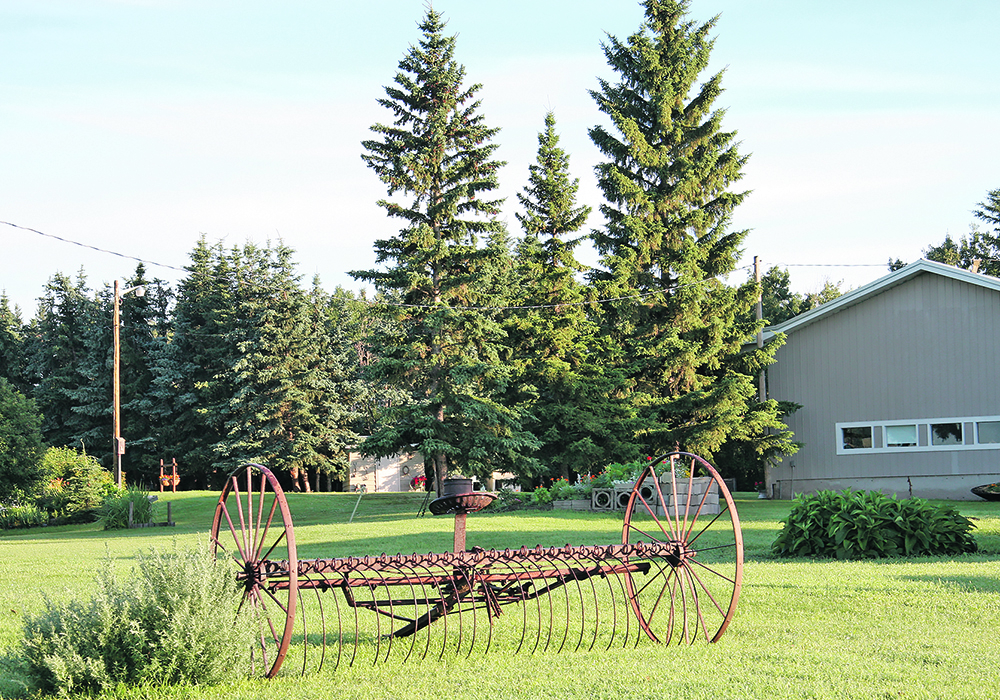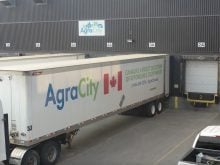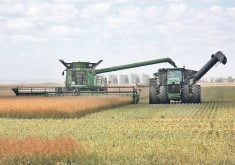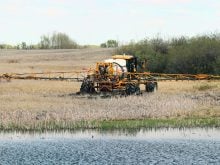WINNIPEG — Most Canadian farmers had a very good year in 2023.
New data from Agriculture Canada shows that 2023 was highly profitable for producers, with the average net operating income jumping 17 percent over 2022.
The net operating income tracks producers’ revenue minus cash expenses at the farm level, the department says.
Last year the net operating income per farm was $155,000, up from $133,000 in 2022. The $155,000 figure is 34 percent higher than the average from 2018-2022.
“Average farm family income, which includes income earned off-farm, is forecast to have increased by 11 percent to $239,000 in 2023, while average net worth is forecast to have increased by four percent to $3.9 million,” Agriculture Canada said in a farm income report released Feb. 16.
Read Also

Farmers urged to be grain-safe this fall
Working around grain bins comes with risk, from farmers falling to drowning in grain: Experts have five tips to help avoid grain-related accidents this harvest.
At a broader level, the department also measures the net cash income, which is the difference between cash receipts and operating expenses for all producers:
- In 2022, net cash income was $21.9 billion.
- In 2023, it was $24.8 billion, an increase of 13 percent.
Much of the gains can be attributed to exceptional cattle markets in 2023.
Livestock receipts increased to $37.3 billion, a jump of 10 percent over 2022.
Ranchers cashed in on prices for 500 to 600 pound feeder steers, which were at $340 to $380 per hundredweight for much of the year.
However, conditions were less favourable for hog producers, Agriculture Canada said.
On the crop side, prices remained strong until the last month of 2023 and prices on key inputs did decline, keeping profits high.
“Operating expenses are expected to have seen much smaller overall growth in 2023 compared to recent years,” the department said.
“This smaller growth is because prices for key inputs, such as fuel and fertilizer, fell from recent highs seen in 2022.”
Agriculture Canada made its 2024 forecast in December, when grain prices were still relatively high. Since then, canola futures have steadily declined, going from $700 per tonne in early December to $580 per tonne in the middle of February. Markets for most grains and oilseeds have also sagged.
The Agriculture Canada forecast may be overly optimistic, but federal experts said that net cash income for agricultural producers (at an industry level) will fall 14 percent compared to 2023, hitting $21.3 billion.
At the farm level, net operating income is expected to sink to $134,000.
“Declining crop receipts and only slight growth in livestock receipts are not expected to offset a modest increase in operating expenses … (because prices for) major grains are expected to continue falling and cattle prices are expected to grow much more slowly.”
In positive news, if Agriculture Canada is correct, 2024 would still be the fourth best year on record for net cash income.
















